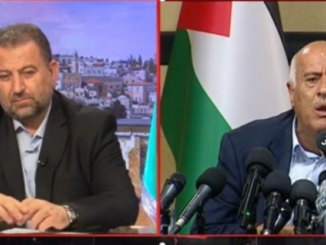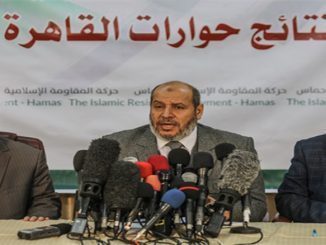
The 43rd anniversary of Egypt’s victory over Israel on the 6th of October War in 1973 came amid a shift in the political discourse and practice where yesterday’s enemy turned to today’s friend, according to Al-Jazeera.
Following Egypt’s Foreign Minister Sameh Shoukry’s sad and distressed appearance during the funeral of Israel’s former President Shimon Peres, many Egyptians spread a mockery on the probability of cancelling the 6th of October celebrations this year for mourning Peres’ death.
The mockery roots out from Egypt’s recent policy as it has become closer to Israel than any time before, that many have announced that they are ready for normalization with Israel and refraining from considering it as an enemy.
Among those who were enthusiastic for normalization with Israel, were politicians and media men close to Al-Sisi such as the former member of parliament,Tawfik Okasha, who received the Israeli ambassador in his house.
In the same context, Abdel Fattah al-Sisi has stressed in a previous time that he won’t allow Sinai to be a backyard for launching attacks against Israel.
However, citizens and activists have celebrated the 6th of October anniversary in their own way as they preferred to post on their personal accounts the pictures of October military leaders and they ignored completely sending messages for the current military leaders.
Osama Al-Hatyamy, a political writer and analyst, said that the last 43 years ensured what was previously said by the former President Mohamed Anwar al-Sadat that October War will be the last war, and he added, “During the last years, the Zionist entity which was yesterday’s enemy has turned to a friend and a neighbor as the head of the Egyptian regime calls for a warm peace with Israel as a necessity.
He continued, “Achieving peace had many critical repercussions on the Palestinian resistance, such as Hamas which has turned to a common enemy for Egypt and the Israeli occupation; as both of them exert a lot of effort to contain its capabilities and to put pressure on them to abandon their aim of liberation.
He also concluded that the occupation which was yesterday’s enemy became today’s friend as,”the ousted President Hosni Mubarak has mourned one of its leaders in 1995, and Egypt’s current foreign minister participated in mourning one its last founders.”
Since the military coup led by Abdel Fattah al-Sisi against the first democratically elected President Mohamed Morsi, the relation between the al-Sisi regime and Israel has developed on the security and intelligence levels in Sinai Peninsula.
Moreover, the al-Sisi regime is working on enhancing intimate diplomatic relations to open the way for full normalization. In his latest speech during the official inauguration of the Asiut power plant, al-Sisi promised Israel “warmer” peace adding that Egypt is ready to mediate to end the Palestinian-Israeli conflict.
The latest visit by Egypt’s FM Sameh Shoukry to Israel, which was the first state visit for an Egyptian foreign minister in nine years, yet it looked like the meeting of old friends and partners. They watched football together, exaggeratedly exchanged pleasantries, and met in Jerusalem, not Tel Aviv.
Moreover, Egypt’s FM Sameh Shoukry was cited considering Israel practices against Palestinians within the context of “security” rather than “aggression” during a meeting with High School top students at the foreign ministry headquarters last August.
When Shoukry was asked whether killing Palestinian children by the Israelis is considered terrorism, he replied, “It cannot be described as ‘terrorism’ without an international consensus on an accurate definition of terrorism. There are some international terms as ‘state terrorism’ which is practiced by some countries against people living outside its borders or suppressing opposition inside its borders but it remains within a political framework,” he said.
In the U.N. General Assembly, Abdel-Fattah al-Sisi praised his relation with Israel and renewed his promise to fulfill warm peace to Israel if the Palestinian Israeli conflict was resolved. Al-Sisi described the Israel-Egypt model as “a real opportunity to write a bright page in the history of our region to move towards peace.”
He told delegates he was departing from the written text of his speech to make an appeal that will bring “prosperity and peace to both the Israelis and the Palestinians.”
He also stressed that Egypt is committed to spreading the peace process in different parts of the region, specifically between Israel and the Palestinians.
Moreover, al-Sisi urged Israel and the Palestinians to follow the “wonderful” example set by the Egyptian regime under his leadership and Israel, and agree on a solution that would let them exist in peace as two neighboring states.



